We conducted a number of interviews with teachers and students at the ARC Tokyo Japanese Language School, which hosts students of various nationalities. The students at this school have different nationalities and are dealing other issues besides just taking courses. They naturally have to work through the differences in nationality, culture and understanding, but we thought that focusing on how they relate to other people one-on-one and their approaches to “interacting with people” might be important as a guide to a future inclusive society.
We thought that Japanese language schools, both as institutions where students of various nationalities are enrolled and as sites that study multicultural co-existence, must be investing considerable effort in dealing with differences in culture and understanding. So, we conducted a number of interviews at ARC Tokyo Japanese Language School, asking teachers about the methods the school uses to teach Japanese and how they deal with the problems that arise due to cultural differences.
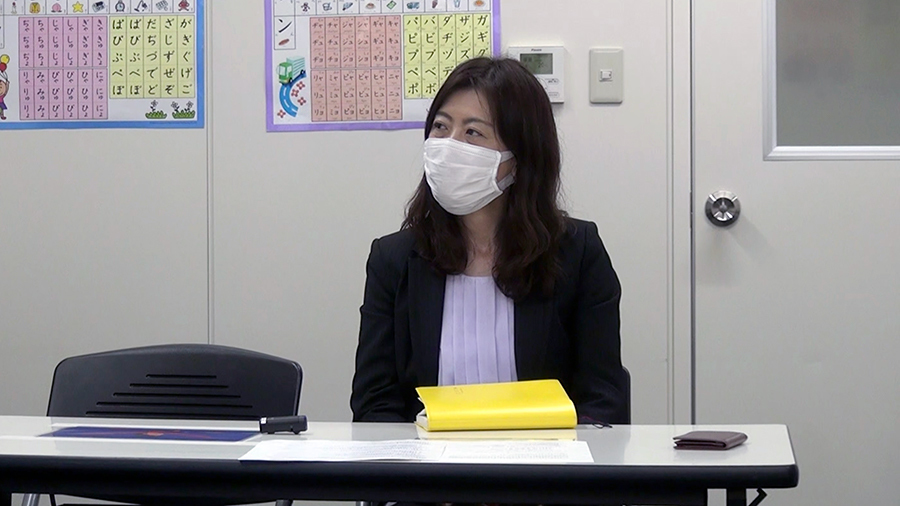
We also interviewed the students. When we asked them about their difficulties with cultural differences, we were impressed by their response, which was that when they have problems of any kind, they find a solution by talking to each other. In the course of our interviews, we realized that the students and teachers at the Japanese language school saw differences in nationality and culture as perfectly natural and looked upon other people as single individuals.
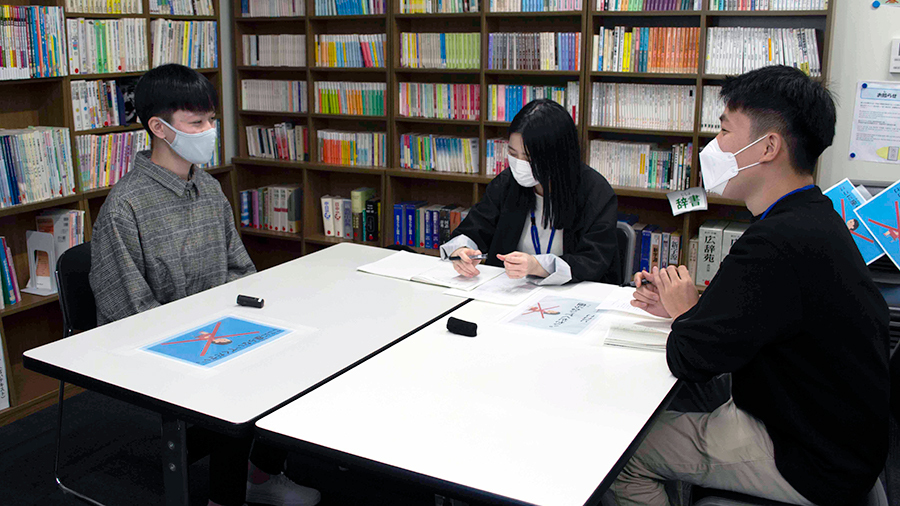
Based on our interviews, the theme we chose for the event was “Interacting with People”, since the students and teachers saw each other as individuals rather than categorizing them based on their nationality or culture. So, we thought that it would be fun to get the participants to see “interacting with people” as a game, but because it was so difficult to come up with a suitable event format, the event didn’t turn out as we had hoped.
So, while we thought that it would be fun to get the participants to see “interacting with people” as a game, we struggled with the event structure as we couldn’t settle on a suitable format.
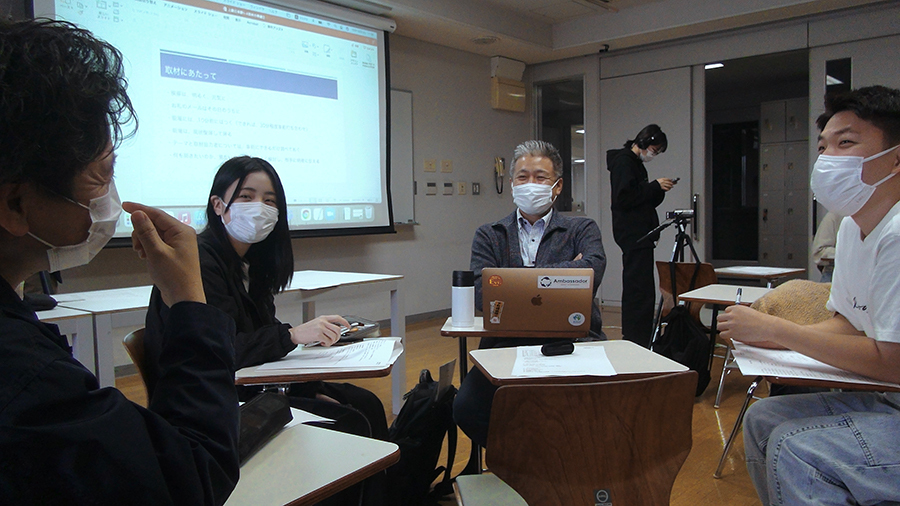
In the lead-up to the day of the event, we prepared by holding several rehearsals and fine-tuning the event details. On the day, we were still consumed by doubts and anxiety that the event would not go well. However, by doing a bit of ice-breaking and exchanging anecdotes, we were able to generate a more genial atmosphere. The participants quickly came out of their shells and the discussion went better than we could have imagined.
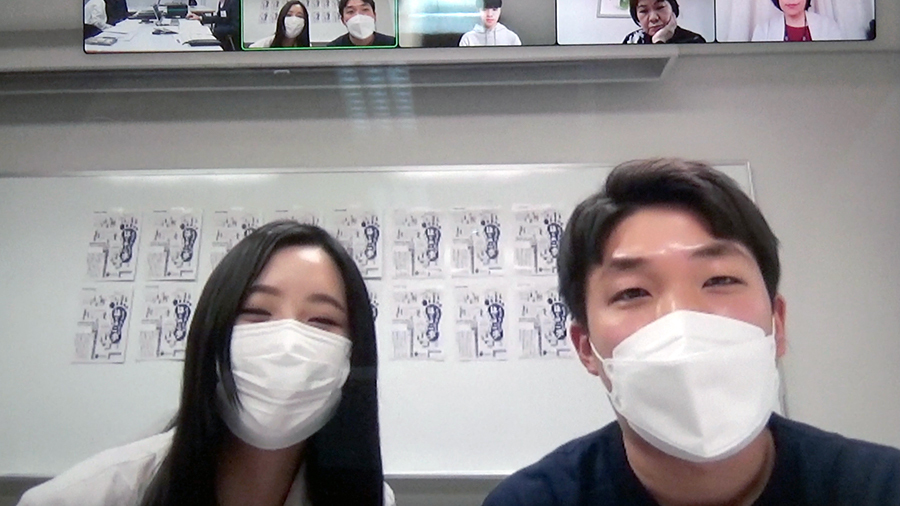
Team JAPANESE WITH EVERYONE
Huang Zirui (1st year, Department of Creative Innovation)
Joo Minkyu (1st year, Department of Creative Innovation)
Lee Eunseo (3rd year, Department of Arts Policy and Management)
Hoshika Yuriko (3rd year, Department of Arts Policy and Management)
Isao Ohtsuka (CASIO COMPUTER Co., Ltd.)
Lee Eunseo
(3rd year, Department of Arts Policy and Management)
Our event this time took its theme from Japanese language schools as multicultural venues and our aim was to think about communication with other people. ARC Tokyo Japanese Language School is more than just a place to learn a language. It is also a place where people grow by interacting with each other with understanding and consideration, regardless of factors such as their nationality or culture. So, in order to convey our theme of “Interacting with People”, we had to rethink the structure of the event over and over, making modifications right up until the day of the event. In the discussions, more people than we expected expressed their opinions, sharing their ideas about inclusiveness with each other, making it a really valuable opportunity. I think this event provided a way both for myself and for all the participants to take the first step towards inclusiveness.
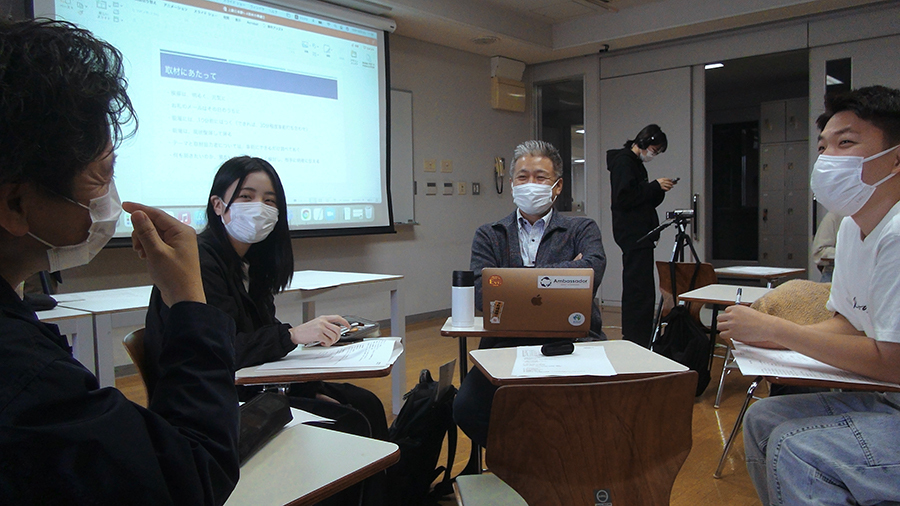
“Interacting with People” as Learned Through Japanese-Language Education